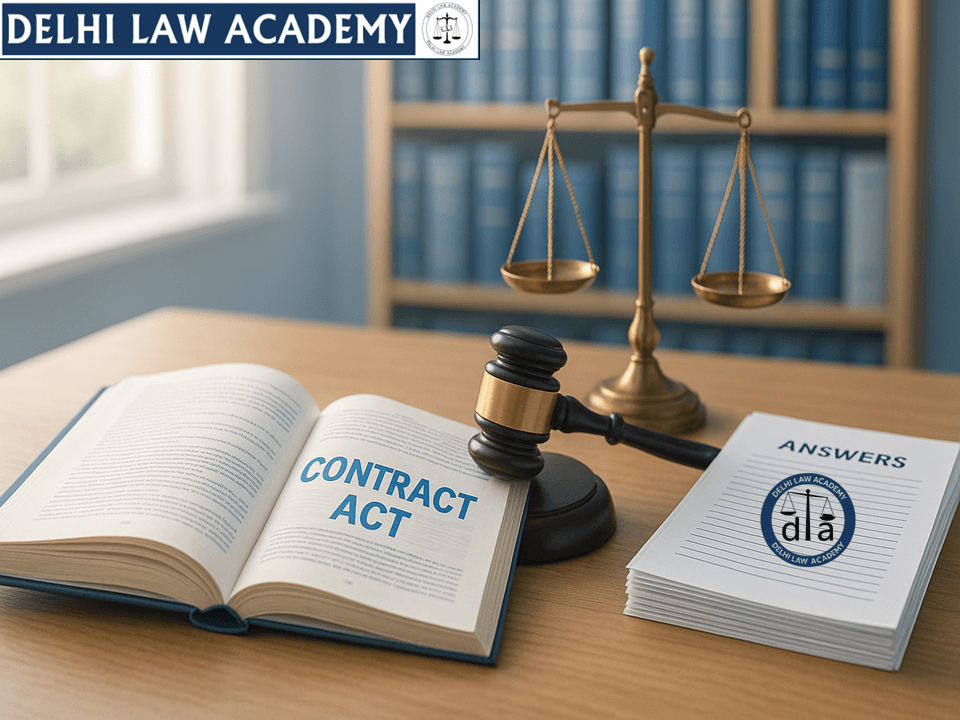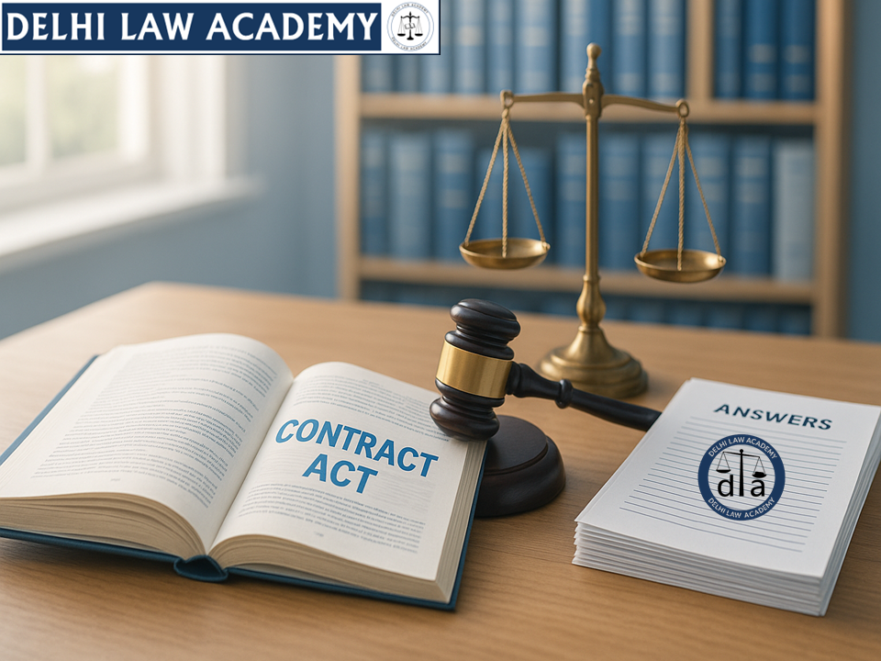
📜 Contract Act Part- 4
🧠 Sound mind for contracting — Section 12
o A person is of sound mind for making contract
o If, at the time when he makes it, he is capable
o of understanding the contract
o of forming a rational judgment of its effect upon his interest
• A person, usually of unsound mind, but occasionally of sound mind
o may make contract when he is of sound mind
• A person, usually of sound mind, but occasionally of unsound mind
o may not make contract when he is of unsound mind
Illustrations
(a) A patient in a lunatic asylum , who is, at intervals, of sound mind
• may contract during those intervals
(b) A sane man, who is delirious from fever
• cannot contract whilst such delirium lasts
(c) A sane man, who is so drunk that he cannot understand the terms of contract or form rational judgment of its effect on his interests
• cannot contract whilst such drunkenness lasts
🤝 “Consent” defined — Section 13
Two or more persons are said to consent when
• they agree upon the same thing in the same sense
Meeting of the minds:
When two parties to an agreement both have the same understanding of the terms of the agreement.
There would not be a meeting of the minds if Bill Buyer said, “I’ll buy all your stock,” and he meant shares in a corporation, and Sam Seller said, “I’ll sell all my stock to you,” and meant his cattle.
Consensus ad idem
Agreement between different people about the exact meaning of a contract that is necessary before the contract is considered to be legally acceptable:
🆓 “Free consent” defined — Section 14
Consent is free when it is not caused by
• coercion [section 15]
• undue influence [section 16]
• fraud [section 17]
• misrepresentation [section 18]
• mistake [sections 20, 21, 22]
• Consent is so caused
o when it would not have been given
• but for the existence of such coercion, undue influence, fraud, misrepresentation or mistake
⚖️ “Coercion” defined — Section 15
“Coercion” is committing, or threatening to commit, an act forbidden by IPC or unlawful detaining, or threatening to detain, any property, to the prejudice of any person whatever with the intention of causing a person to enter into an agreement
Illustration
A, on board an English ship on high seas causes B to enter into an agreement by an act amounting to criminal intimidation under IPC.
A afterwards sues B for breach of contract at Calcutta.
A has employed coercion though his act is not an offence by law of England and sec 506 IPC was not in force at the place where the act was done.
💼 “Undue influence” defined — Section 16 (1)
• A contract is induced by “undue influence” where
o one party is in a position to dominate the will of the other
o and
o it uses that position to obtain an unfair advantage over the other
📜 Deeming provision — Section 16 (2)
• A person is deemed to be in a position to dominate the will of another where
o he holds a real or apparent authority over the other
o he stands in a fiduciary relation to the other
o mental capacity of the other is affected by age, illness or mental/bodily distress
❗ Unconscionable transaction — Section 16 (3)
• Where
o a person who is in a position to dominate the will of another enters into a contract with him
o and
o the transaction appears to be unconscionable [on the face of it or on the evidence adduced]…
• burden of proving that such contract was not induced by undue influence
o shall be upon the first person
Note: Meaning of ‘unconscionable’
Unconscionable: not guided by conscience; unscrupulous, something that is almost unimaginably unacceptable, something unbelievable, outrageous
Think of it as something that no reasonable person would even think of doing or saying
Illustrations
(a)
A having advanced money to his son B, during minority, upon B’s coming of age obtains, by misuse of parental influence a bond from B for a greater amount than the sum due; A employs undue influence
(b)
A a man enfeebled by disease or age is induced, by B’s influence over him as his medical attendant to agree to pay B an unreasonable sum for his professional service; B employs undue influence
(c)
A being in debt to B, the money-lender of his village contracts a fresh loan on terms which appear to be unconscionable: It lies on B to prove that the contract was not induced by undue influence
(d)
A applies to a banker for loan at a time when there is stringency in money market. Banker declines to make the loan except at an unusually high rate of interest A accepts the loan on these terms
This is a transaction in ordinary course of business and the contract is not induced by undue influence.
📌 Note for Readers
Cases decided by the Supreme Court and the Privy Council on “undue influence” as defined in section 16 shall be highlighted and discussed in the next post.
📚 Continue Your Contract Act Preparation
Don’t stop here! Strengthen your knowledge of the Contract Act with our other fully solved tests:
📘 Free Study Material for Judiciary Aspirants!
Download our FREE study material prepared by Delhi Law Academy’s expert faculty.
❓ Frequently Asked Questions
Contact us
📍 Delhi Law Academy – Jaipur Branch
6C, Tower 2, Coaching Hub, Pratap Nagar, Jaipur – 302033
📞 Phone:
+91 9911916552
+91 8447285606
✉️ Email:
contactus@delhilawacademy.com

